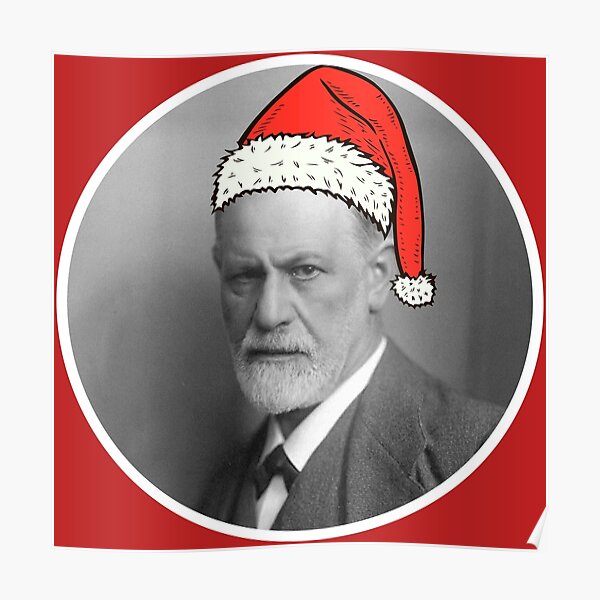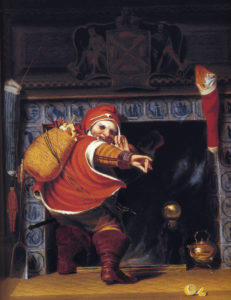
Sigmund Freud is known to have celebrated Christmas, and his followers in the psychiatric profession have not ignored the season in their quest for understanding the deepest secrets of the human personality.
Dr. Adrianus de Groot, for example, claims that the folk customs surrounding St. Nicholas represent all the stages of the human reproductive cycle from courtship to the production of offspring. “The symbolism could hardly be more characteristic,” states the good doctor, who helpfully emphasizes the clues we should have noticed “the riding on the rooftops of houses, the pouring down of sweets and other presents through the chimney, so that all these good things fall into the shoe or the barrel beside the fire.” Treasure is of course semen and the story of the three murdered students whom St Nicholas revives is the story of the “male triumvirate”; their death is the “death of the phallus.”
For Dr. Richard Sterba, female imagery is the key to unlocking the heart of Christmas. The chimney and the fireplace that Santa Claus uses to enter the house are the vagina and the vulva to the unconscious mind of the child and presents therefore come out of the birth canal. Santa Claus with his great belly is thus a pregnant woman. In fact the whole process of shopping, wrapping and keeping secrets is symbolic of pregnancy just as the exhaustion that follows the opening of presents resembles that experienced after giving birth.
A Christmas Carol’s Ebenezer Scrooge, who hoarded money, is diagnosed as anal-retentive by Freudians. Michael Steig reminds us of the link between feces and money and speaks of the “excremental vision” of Charles Dickens. (Other psychiatrists have noted Dickens’s love of food and feasting and have pronounced him an “oral” personality.) Dr. Walter Bortz points out that Scrooge was cured by Dickensian psychotherapy and urges sufferers of Christmas funk to follow Dickens’s prescription of indulgence coupled with generosity.








